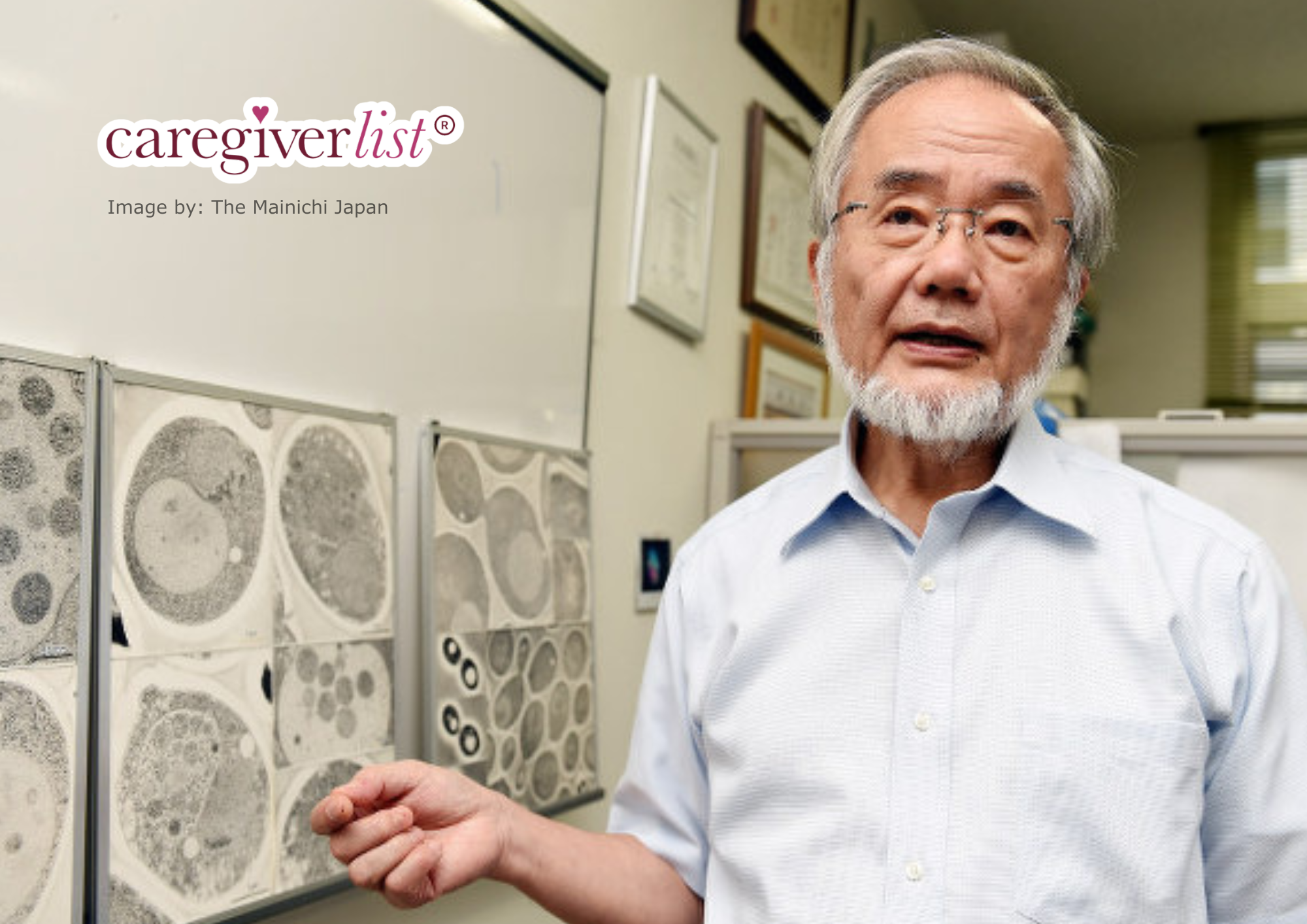As caregivers, you focus on keeping things organized and running smoothly for your senior clients. But did you know your body and theirs are doing a similar type of “housekeeping” at a microscopic level? This process, called autophagy, plays an important role in maintaining health, especially as we age.
But how exactly does it work, and when does it happen? Yoshinori Ohsumi discovered that “when the human body is hungry, it eats itself, it performs a purification process, removing all diseased cells” and it’s called the Autophagy Process.
Autophagy is the body’s way of purifying itself by removing damaged cells and recycling their components. The word autophagy literally means “self-eating” (from the Greek words auto for “self” and phagy for “eating”). While that may sound strange, it’s actually a good thing!
Autophagy isn’t happening all the time, instead, it’s triggered under certain conditions, especially when the body is under mild stress. Here are the main times when autophagy is activated:
During Fasting: When the body doesn’t have access to food, like during periods of hunger or fasting, it turns inward to find energy. It begins to “eat” or break down its own damaged cells, diseased components, and other cellular debris. This purification process helps the body get rid of harmful or malfunctioning parts, making way for new, healthy cells to thrive.
During Exercise: Physical activity puts stress on cells, prompting them to clean up and repair themselves through autophagy.
During Sleep: Autophagy ramps up while you sleep, as your body focuses on repair and restoration. Quality sleep is essential for this process.
In Response to Stress: When cells are exposed to mild stress—like low oxygen levels, toxins, or heat, they kick autophagy into gear to protect themselves.
Why is This Important for Seniors?
For seniors, autophagy becomes even more critical because the body’s ability to clean and repair cells naturally declines with age. Without enough autophagy, damaged cells can accumulate, leading to inflammation, disease, and lower energy levels.
Supporting autophagy can help seniors:
- Prevent the buildup of harmful proteins that contribute to Alzheimer’s and Parkinson’s.
- Recycling cellular components creates fresh energy, helping seniors stay active and engaged.
- By clearing out damaged cells, autophagy helps boost their immune systems, reducing the risk of illness.
You can help support autophagy in your senior clients by encouraging habits like:
- Gentle exercise: Encourage daily walks or chair exercises to stimulate cellular cleanup
- Healthy foods: Include leafy greens, healthy fats, and antioxidant-rich foods in meals.
- Better sleep: Help create a calm bedtime routine to ensure seniors get restorative sleep, when much of the repair work happens.
Something New to Know About Autophagy
Scientists are discovering even more about autophagy’s role in preventing age-related diseases. For example, ongoing research suggests that enhancing autophagy might slow down the progression of chronic illnesses like diabetes and neurodegenerative disorders. These findings highlight the importance of supporting this process through everyday habits.
By understanding not just what autophagy is but how and when it happens, you as caregivers can better support your clients’ cellular health and your own! It’s a reminder that even the smallest actions, like moving more or getting a good night’s sleep, can lead to big improvements in overall well-being.







